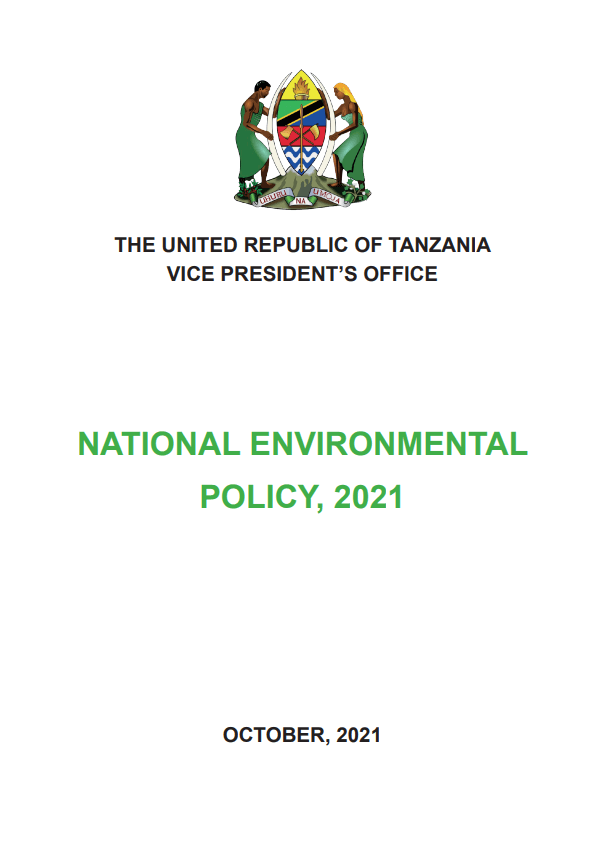Tanzania National Environmental Policy, 2021. Tanzania is endowed with abundant, unique and valuable environmental resources which contribute to more than 70% of
the national Gross Domestic Product (GDP) and livelihoods of majority of the people. These resources among others include: arable land, forests, marine and freshwater sources, wetlands, wildlife, mountains, natural gas and minerals. In order to ensure environmental conservation and sustainable use of natural resources, the first National Environmental Policy (1997) was adopted to address the identified environmental challenges and foster sustainable socio-economic development in the country.
Environment and natural resources are valuable national assets that have to be sustainably managed for the present and future generations. They offer a range of benefits and opportunities for local and national levels for socio –
economic growth such as improved livelihoods and provision of environmental goods and services. Despite being the foundation on which sustainable development is anchored, the national analysis of the state of the environment identified six (6) environmental challenges that needed urgent actions to address the deterioration of the environment in the country.
These challenges are: land degradation; lack of accessible good quality water for rural and urban inhabitants; loss of
wildlife habitats and biodiversity; deterioration of aquatic
systems; deforestation; and environmental pollution.
These challenges not only threatened livelihoods of the people and the national economy, but also state of the environment which
is crucial in supporting all forms of life…

